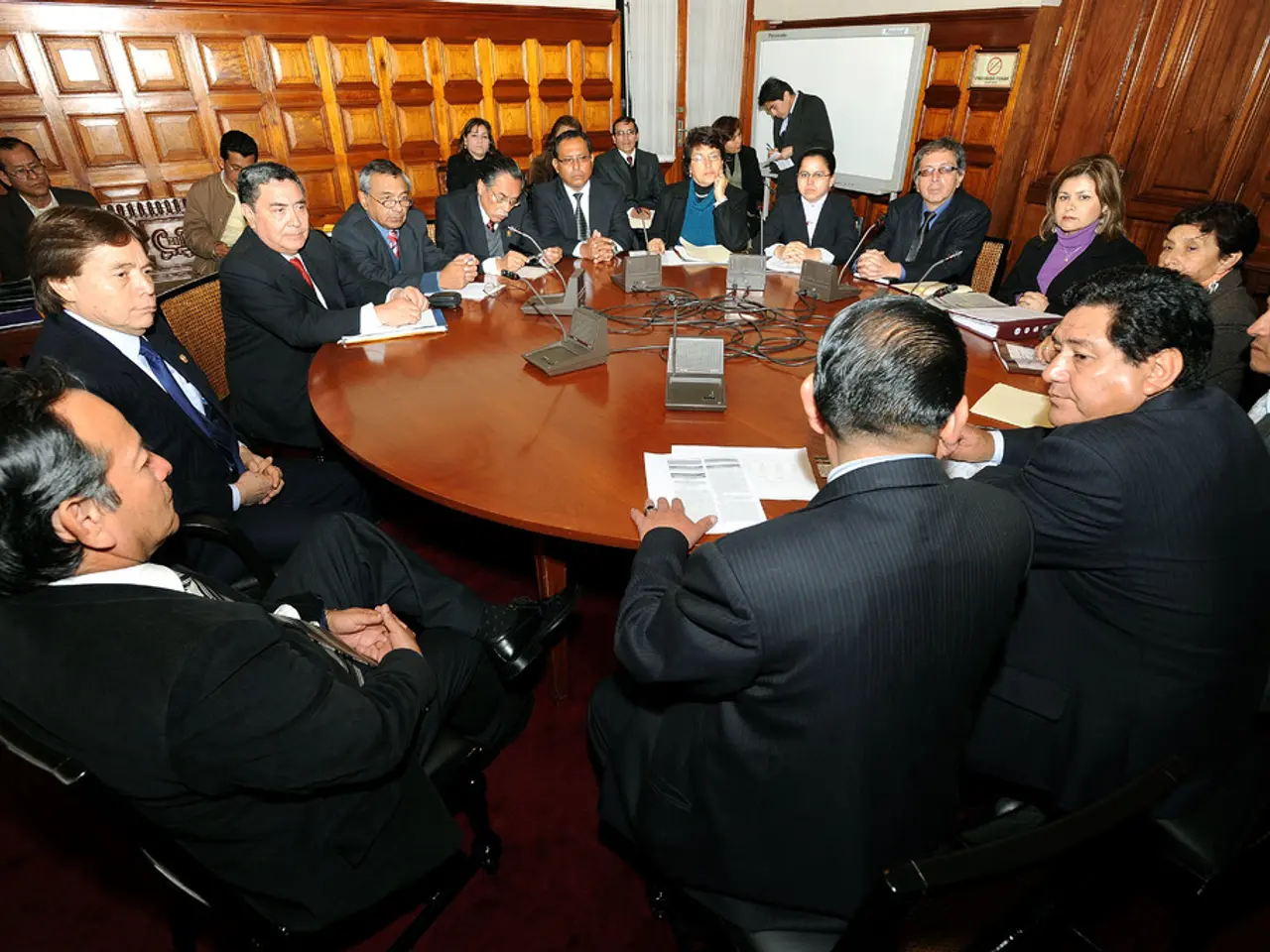In their inaugural summit, Germany's Armin Merz and UK's Keir Starmer have solidified a security agreement.
**The Kensington Treaty: A New Era of Cooperation Between Britain and Germany**
In a historic move, Britain and Germany signed the Kensington Treaty on Thursday, marking the most significant bilateral agreement between the two nations since the end of World War II. The treaty, which aims to deepen institutional ties in areas such as defence, security, and transport, is a testament to the evolving relationship between the two countries and their response to global uncertainties[1][2][3].
**Strengthening Defence Ties**
The treaty identifies Russia's war in Europe as a major security threat and commits both nations to deepen strategic exchanges on security policy. It includes enhanced cooperation on intelligence and national security capabilities and reaffirms commitment to NATO while aiming to advance European strategic autonomy alongside partners like France[1][3].
**Economic and Cultural Cooperation**
Beyond security, the treaty promotes closer trade ties within UK-EU frameworks, climate goals under the Paris Agreement, cultural and educational exchange initiatives, and infrastructure links such as a planned direct train between London and Cologne[2][3].
**Addressing Illegal Immigration and People Smuggling**
Recognising the growing issue of illegal immigration and people smuggling, the treaty establishes an annual Home Affairs dialogue at a senior official level focused on combating migrant smuggling and strengthening border security. Germany has agreed to amend its laws to empower both countries to better disrupt the supply of small boats used by people smugglers to attempt Channel crossings to the UK[1].
Both countries will provide mutual legal assistance and prosecute offenders involved in migrant smuggling between them, aiming to "smash the people smuggling gangs" and secure borders effectively[1]. The treaty also commits the UK and Germany to expand cooperation trilaterally with France and other partners within multilateral forums such as the G7 and the United Nations to jointly address migration and security challenges on an international scale[1].
In summary, the Kensington Treaty is a comprehensive step that strengthens bilateral defence ties and launches coordinated efforts to counter illegal immigration and people smuggling through legal reforms, prosecutorial collaboration, and international partnerships[1][2][3]. The treaty is part of a wider visit by German Chancellor Friedrich Merz, during which defence firms and specialist technology developers are launching investments.
In addition, the leaders of Britain and Germany have declared the conflict in Gaza unacceptable and called for a ceasefire, the return of all hostages, and a two-state solution for a secure future for Palestinians and Israelis. This demonstrates the treaty's commitment to addressing global issues and promoting peace and stability.
[1] BBC News, "UK and Germany sign wide-ranging friendship treaty," 15 July 2025, www.bbc.co.uk/news [2] The Guardian, "Kensington Treaty: Britain and Germany sign landmark post-Brexit deal," 15 July 2025, www.theguardian.com [3] The Telegraph, "Kensington Treaty: Britain and Germany to explore direct rail link between London and Berlin," 15 July 2025, www.telegraph.co.uk
- The Kensington Treaty, despite its focus on defense and security, also addresses global issues, as evidenced by the British and German leaders' call for a ceasefire in the Gaza conflict.
- The treaty signifies a new era of cooperation between Europe and the Middle East, as Britain and Germany have expressed a commitment to addressing the conflict in Gaza and pursuing a two-state solution.
- Apart from its defense provisions, the Kensington Treaty aims to combat illegal immigration and people smuggling, as demonstrated by the annual Home Affairs dialogue and mutual legal assistance between the two nations.
- Recognizing the importance of technology in the modern world, the treaty is also expected to spur investment in defense firms and specialist technology developers, as indicated by the visits of German leaders during the treaty's signing.
- The Kensington Treaty plays a significant role in European policy and legislation, as it reaffirms commitments to NATO, advances European strategic autonomy, and addresses global uncertainties through increased trade and cooperation.
- The treaty's impact extends beyond Europe, as the UK and Germany aim to collaborate with France and other partners within multilateral forums such as the G7 and the United Nations to address international challenges, including migration and security.
- In line with the spirit of cooperation exemplified by the Kensington Treaty, Britain and Germany have further demonstrated their commitment to promoting general news, by calling for the return of all hostages and working towards a secure future for Palestinians and Israelis.







